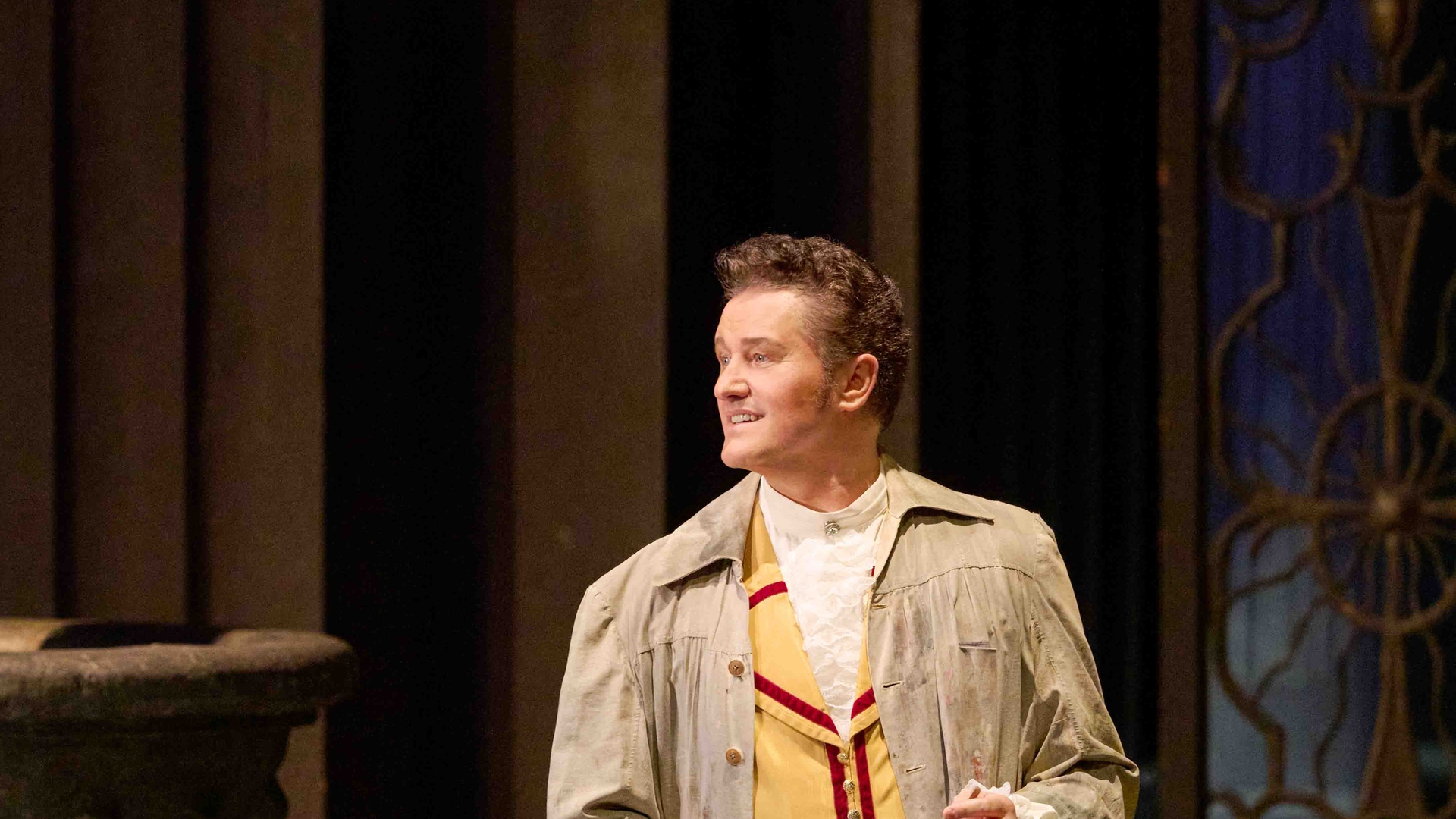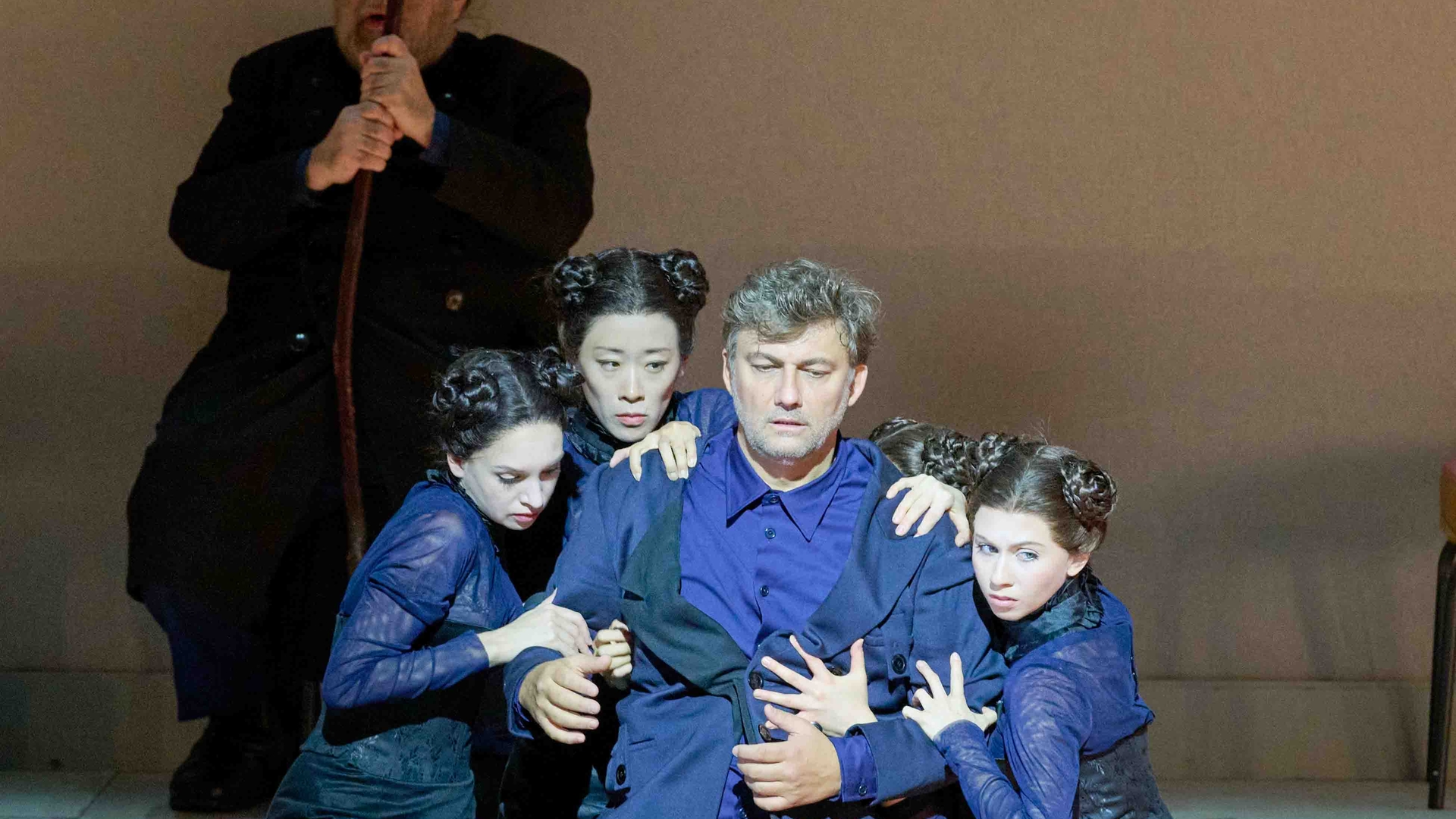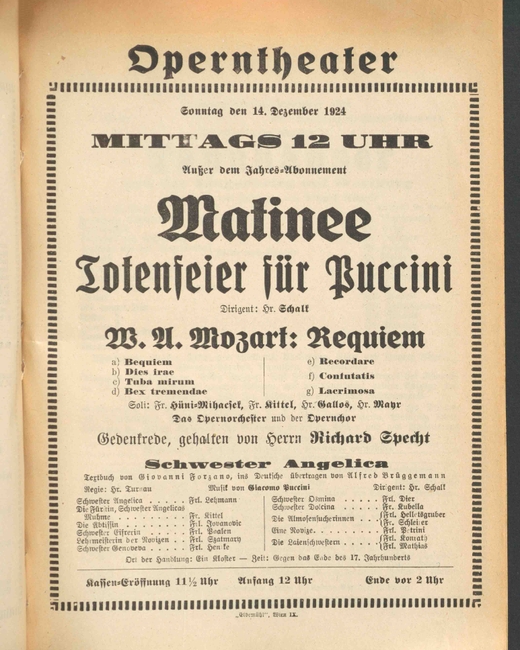A farewell to a musical master and an entire era
News |
On November 29, 1924, the news of Giacomo Puccini's death shook the world. Pietro Mascagni, composer and friend of the deceased, expressed his grief in the Wiener Nachrichten: "The art of the whole world is in mourning because it has lost the creator of so many melodies that have enchanted the entire educated world." In Vienna, a city that Puccini particularly loved, his death is accompanied by a wave of memories and tributes.
Puccini's relationship with Vienna: a deep admiration
Puccini had a special relationship with Vienna. in 1923, a year before his last visit, he said: "I believe that Vienna is still the leading city in the world - with great orchestras, fantastic choirs and an opera house of the very first rank." The composer appreciated the cultural offerings and the recognition he received in the city. Despite his introverted nature, he regularly took part in social events and was even passed from salon to salon. He was particularly fascinated by music, including that of Richard Wagner and Richard Strauss.
Puccini's work and its everlasting significance

However, Puccini's death not only marked the end of a musical genius, but also the farewell to an entire era in music history. Elsa Bienenfeld, an important critic of the time, described Puccini's operas as "the sun of the south", which "glows through the theater" and bestows modern man with the "springtime splendor of blossoming melody". The Vienna State Opera is commemorating him with a special concert featuring Mozart's Requiem and Puccini's Suor Angelica.
Puccini's influence on the world of Viennese opera
Puccini's La Bohème was first performed in Vienna in 1897. Despite initial skepticism, especially from Viennese critics such as Eduard Hanslick, the work was a great success. The Vienna Court Opera was also initially reluctant to include Puccini in its repertoire, but under the direction of Gustav Mahler, La Bohème was introduced at the Haus am Ring in 1903. Mahler, although not a particularly great admirer of Puccini's music, understood the composer's cultural value and made a significant contribution to establishing Puccini's works in Vienna.
Puccini's works such as Tosca, Madama Butterfly and Manon Lescaut became cornerstones of the repertoire at the Vienna Court Opera and soon found a permanent place in Viennese operatic life. During his stays in Vienna, Puccini was often personally present at rehearsals, which shows his deep attachment to the Viennese theatrical tradition.
Puccini's musical legacy and his immortal presence

Today, one hundred years after his death, Puccini's operas remain a central part of the Vienna State Opera's repertoire. Classics such as Tosca and La Bohème are regularly performed, and works such as Madama Butterfly, Turandot and Manon Lescaut are also an integral part of modern productions. Puccini has proven to be one of the mainstays of the opera repertoire, whose works continue to delight opera directors and audiences alike.
An everlasting theatrical legacy
Elsa Bienenfeld summed it up aptly in 1924: "Puccini has become the happiness and blessing of all opera directors, who could not make a repertoire if Puccini's beguiling, irresistible operas were taken away from them." Puccini's music is and remains an indispensable part of opera history - and his legacy lives on in the halls of the Vienna State Opera.

